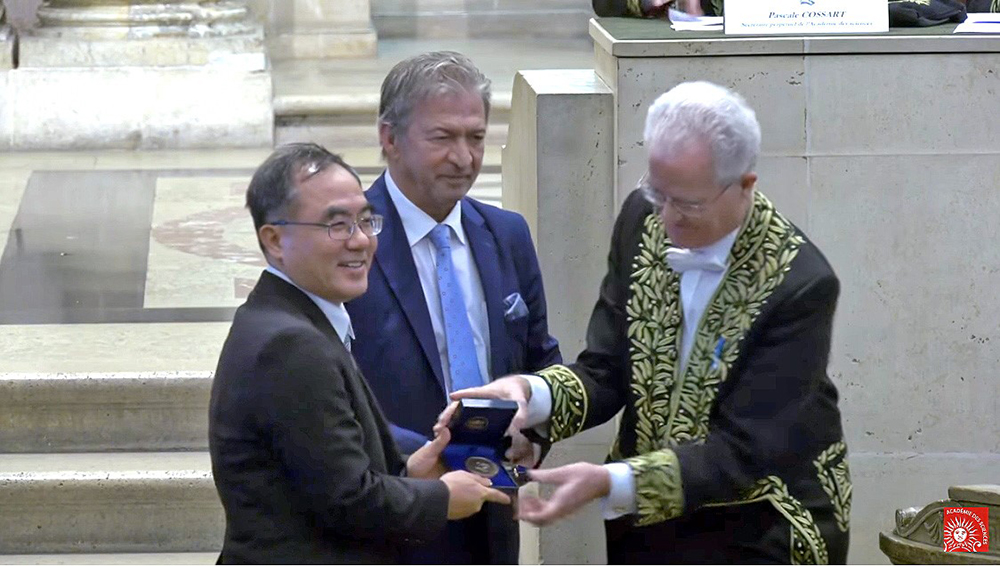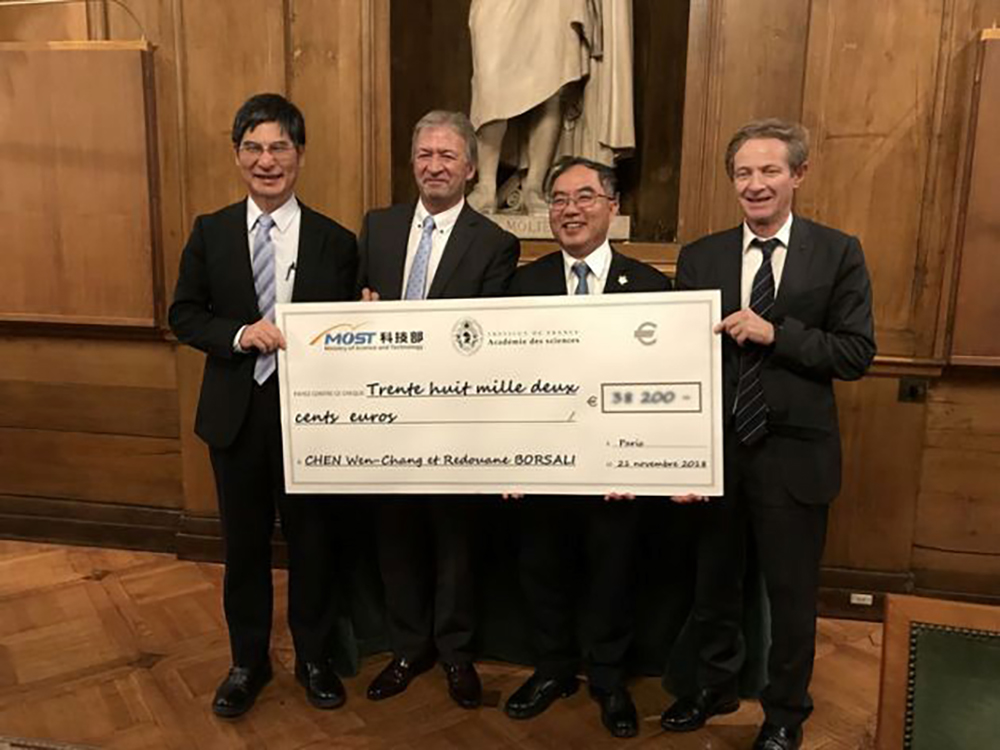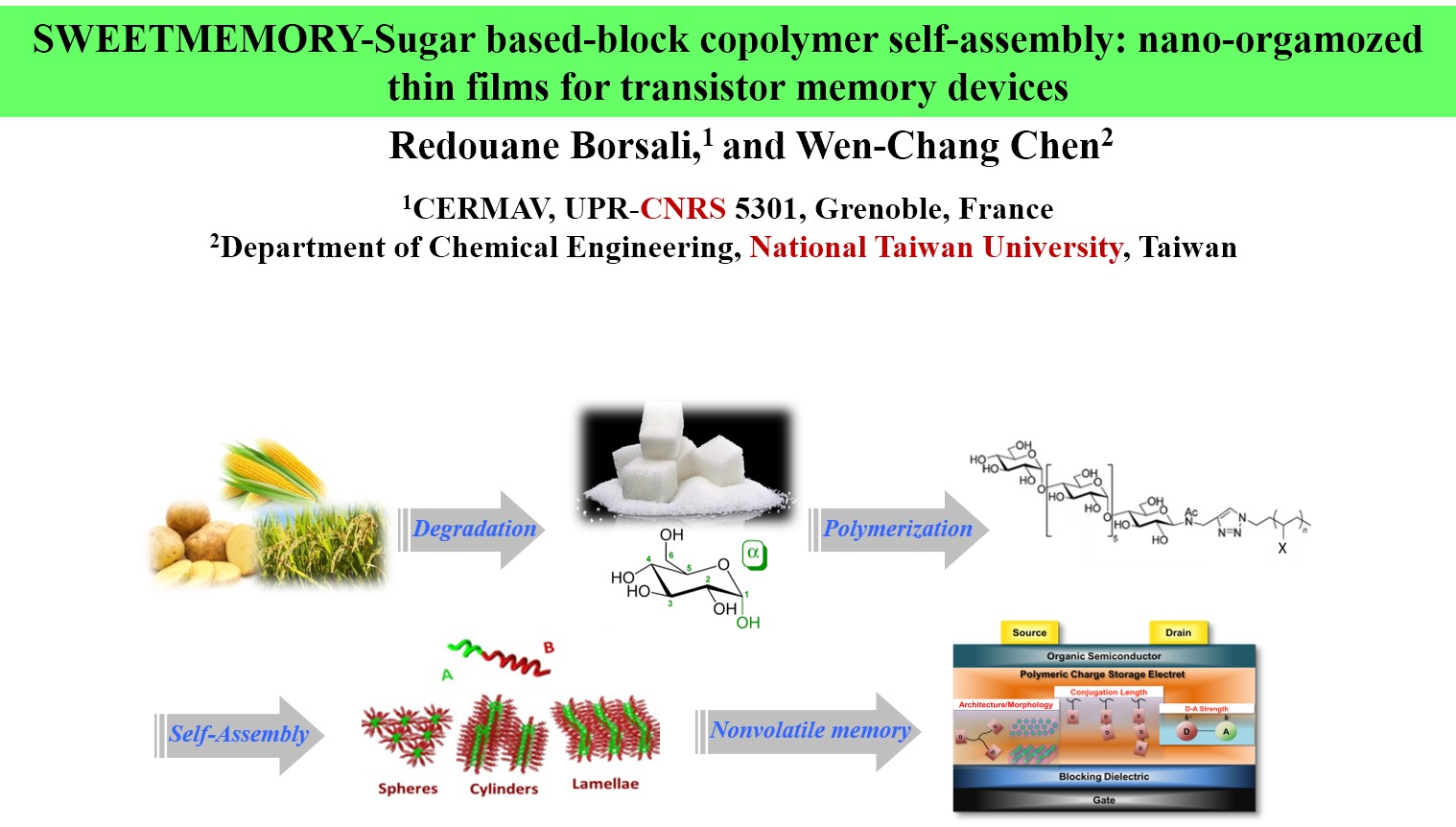Sub-footprint LiDAR technique for riverbed grain size analysis

Author(s)
Wen-Chang ChenBiography
Wen-Chang Chen is Distinguished Prof. at Department of Chemical Engineering at National Taiwan University, where he also serves as Dean of College of Engineering and Director of Advanced Research Center for Green Materials Science and Technology. His research focuses on the synthesis, morphology, and applications of electronic and photonic polymers.
Academy/University/Organization
National Taiwan UniversityEdited by
Prof. Wen-Chang Chen, Department of Chemical Engineering, National Taiwan University-
TAGS
-
Share this article
You are free to share this article under the Attribution 4.0 International license
- ENGINEERING & TECHNOLOGIES
- Text & Image
- February 27,2019
Glycopolymer or polysaccharide is the biomass production of cellulose or straw, making it an inexhaustible source of raw materials for environmentally friendly and biocompatible products. However, integrating bio-based materials into electronics with high-performance efficiency has become a significant challenge. Thus, Prof. Chen and Prof. Borsali started the cross-country collaboration to develop oligosaccharide-based nanostructured thin films as the charge storage layer for electrical memory devices, through their hydroxyl group composition and self-assembly nanostructures. The collaboration was well funded with two important projects granted by CNRS-MOST and ANR-MOST. This research project received the Franco-Taiwanese Scientific Grand Prize 2018, jointly awarded by the Académie des Sciences and the MOST.
When we talk about sugar, we are fascinated by nature’s ability to produce sweetness. What if this sweetness would preserve memory? The long-time research collaboration between Prof. Wen-Chang Chang from National Taiwan University, and Prof. Redouane Borsali from Grenoble Alpes University made “sweet memory” a reality.
Better than sweetness, the two prof. received the Franco-Taiwanese Scientific Grand Prize 2018, jointly awarded by the Académie des Sciences and the MOST in November 2018, for the research’s originality in demonstrating that sugar-based block copolyemers could be employed for green non-volatile electrical memory devices and have a high potential for commercial applications on smart cards and wearable electronics.



STAY CONNECTED. SUBSCRIBE TO OUR NEWSLETTER.
Add your information below to receive daily updates.




